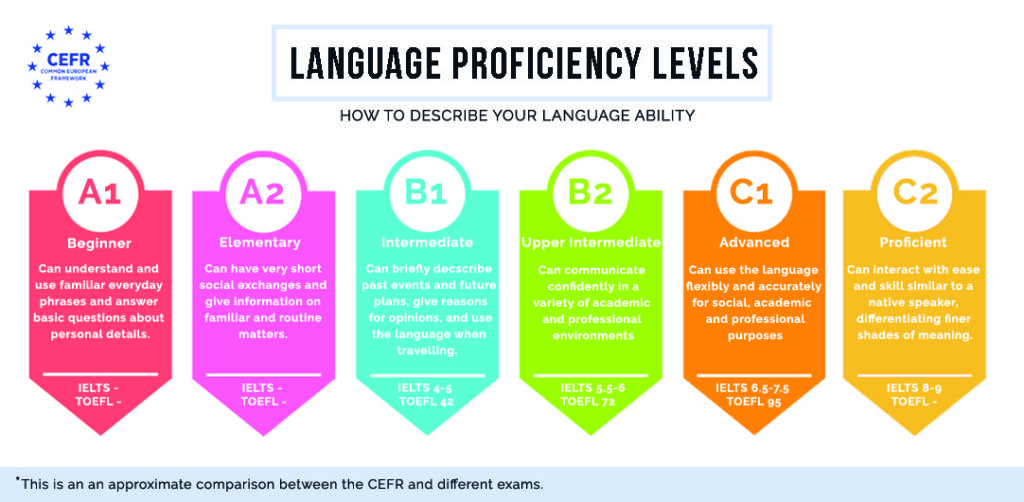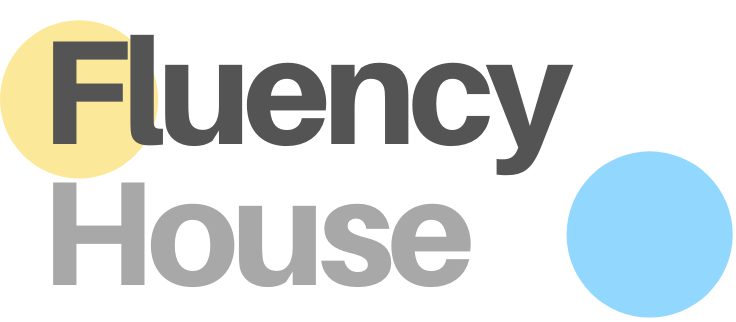
There’s no doubt that superior language skills can make you an attractive candidate.
But are you and the hiring manager speaking the same language when it comes to proficiency levels?
Since you only have a few seconds to make an impression, don’t waste time with ambiguous or irrelevant descriptions.
Instead, make your language skills stand out by highlighting them throughout your CV. Use clear and accurate descriptions and add context to your linguistic abilities where possible.
How to list language proficiency on your CV
If you’re not sure how to talk about your language skills in your CV, you’re not alone.
After all, it’s not easy to reduce an entire language into a few simple categories.
First, certification will help remove any doubts about your language level. However, if you’re not ready to invest in an official language exam, you’re left with self-assessment. Luckily, there are several tests and frameworks of language proficiency that can help you with this.
In Europe, the standard grading scale for language proficiency is called the Common European Framework of Reference for Languages (CEFR). Developed by the Council of Europe, this framework outlines six levels of language proficiency with a list of “can-do” statements.
To start, take a look at the self-assessment tools available, and be honest when evaluating your level. Think about each aspect of language proficiency: reading, writing, speaking, and listening, and take the average of your skills. Once you have determined your language level, be sure to reference the scale along with the level descriptor.
For example:
English: CEFR C1 (Advanced)

As an alternative, you could describe your language skills using the Interagency Language Roundtable (ILR) scale. This is the same scale found on LinkedIn, where you have five proficiency levels to choose from:
- Elementary Proficiency
- Limited Working Proficiency
- Professional Working Proficiency
- Full Professional Proficiency
- Native or Bilingual Proficiency
How to get your language skills noticed
While a self-assessment isn’t as impressive as a standardized test, it will look more professional than generic descriptions like “fluent” or “conversational”. Plus, you can demonstrate credibility in other ways. Have you taken any language courses or studied abroad? Do you have experience working with clients using a foreign language? How about volunteer work? Have you participated in language meetups or joined a language club? Don’t just stop at the languages and skills section of your CV. Use every opportunity to illustrate your linguistic talents and include relevant examples in the various sections of your CV.
Why your language skills must be relevant
Before adding another language, ask yourself “could I function at work using only this language?”
In some cases, it makes sense to leave your language skills off your CV. Listing your “beginner” status in a foreign language, for example, does little to make you a more attractive candidate. Though it shows a willingness to learn and initiative on your part, you can’t exactly apply those language skills at work.
When your language skills aren’t directly related to the position, consider changing how you present them on your CV. You can add any language courses you’ve taken under Courses/Education, or if you enjoy language learning in general, include it in your Personal Interests.
Lastly, if you’re worried about your linguistic abilities, resist the urge to embellish your level. It’s easy to verify if you really speak the language, so save yourself the embarrassment and invest in some language training. That way, when you do get to the interview, you can talk about your ongoing learning and show you’re working to improve your language skills.
RESOURCES:
- Fluency House level test
- CEFR self-assessment grids
- ILR self-assessment: speaking, reading, listening
- LinkedIn how to: sections you can edit in your profile

